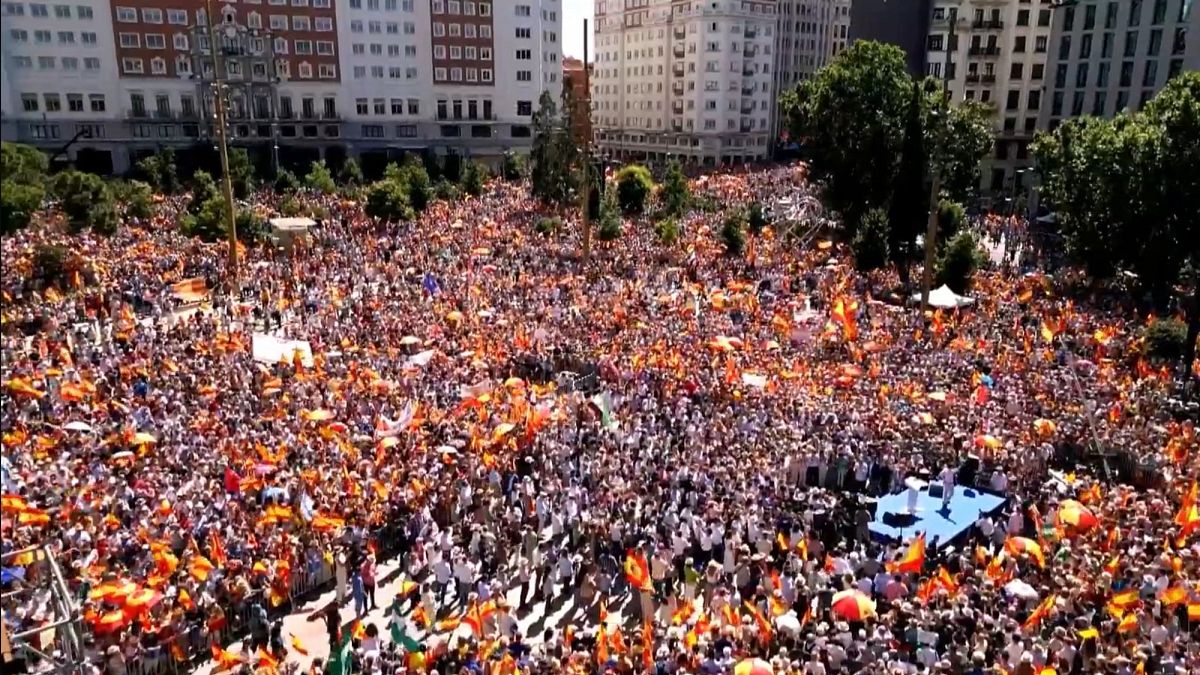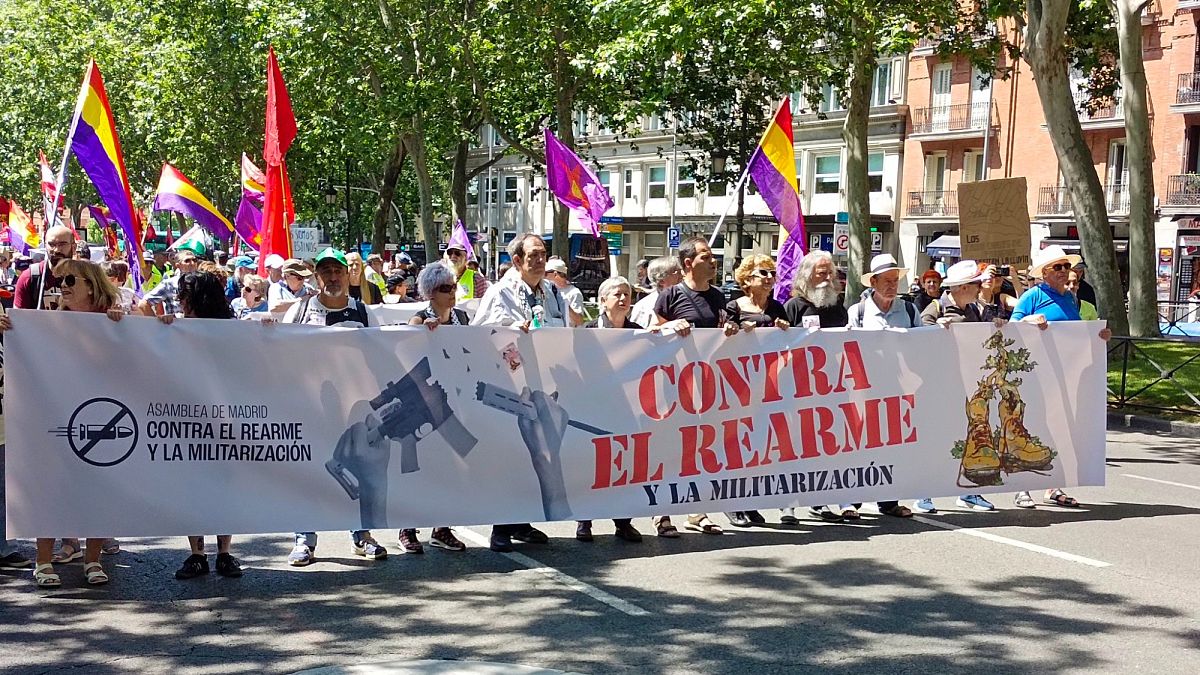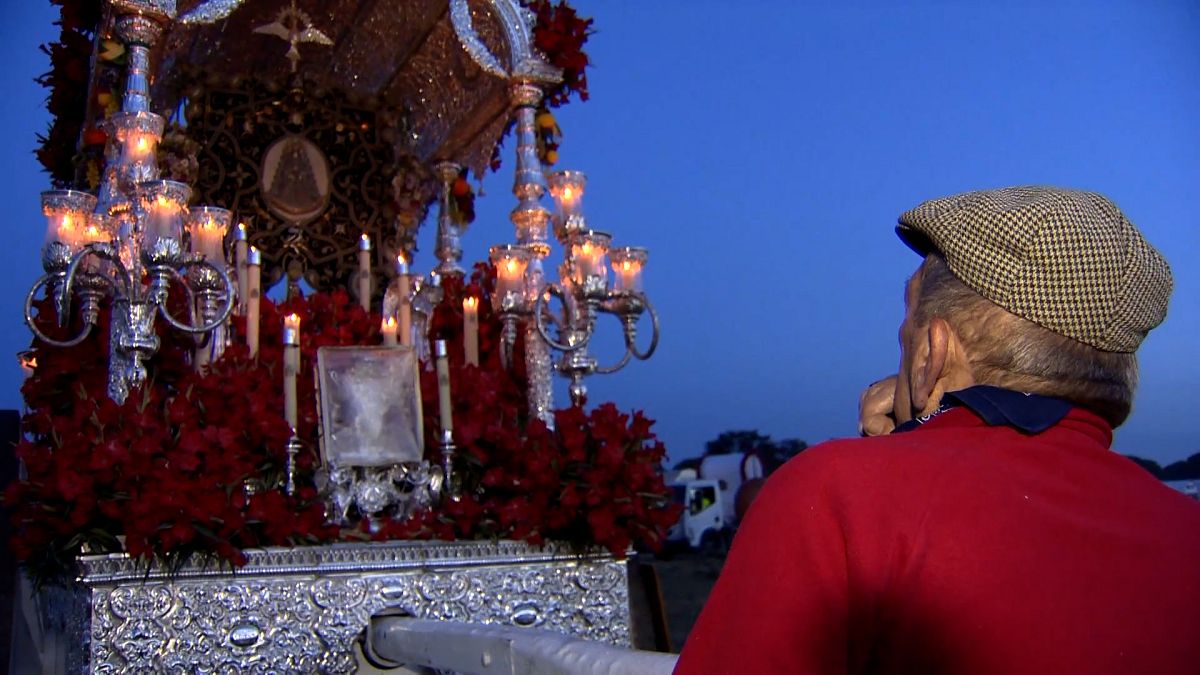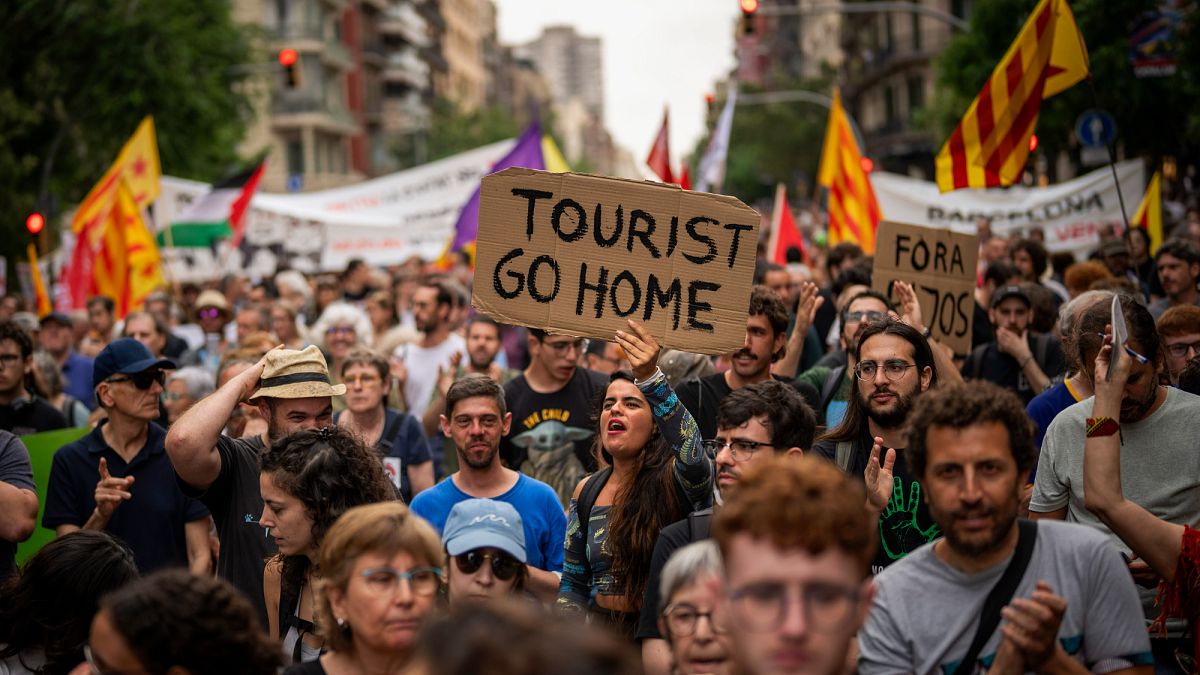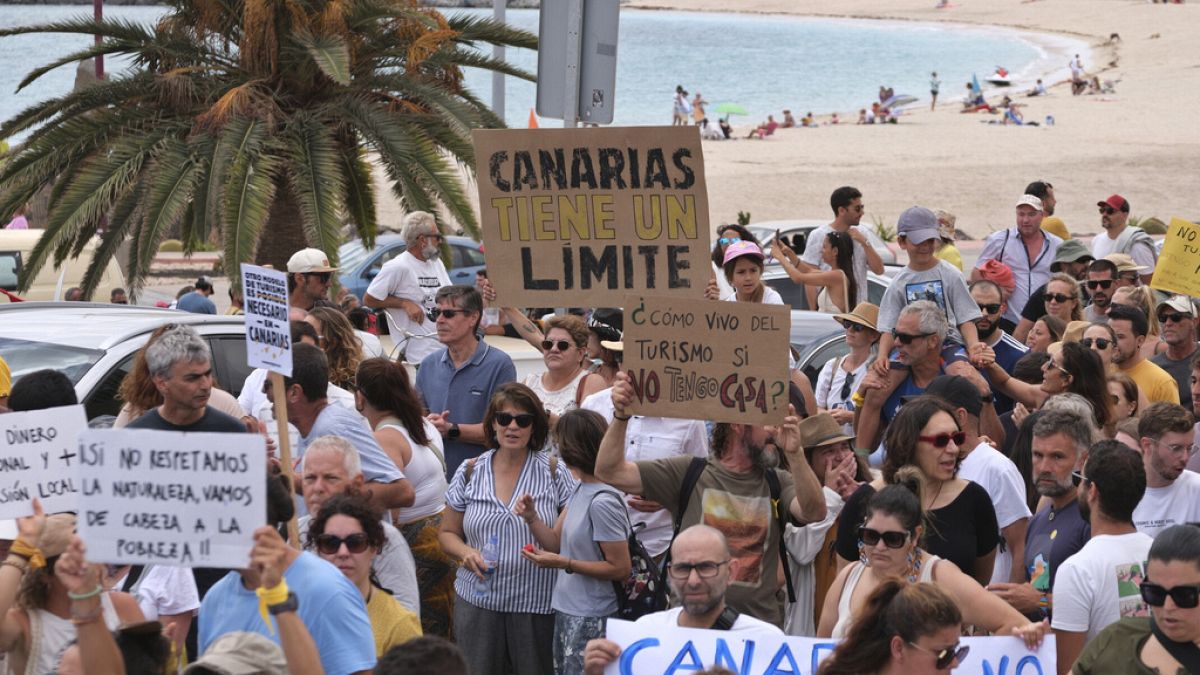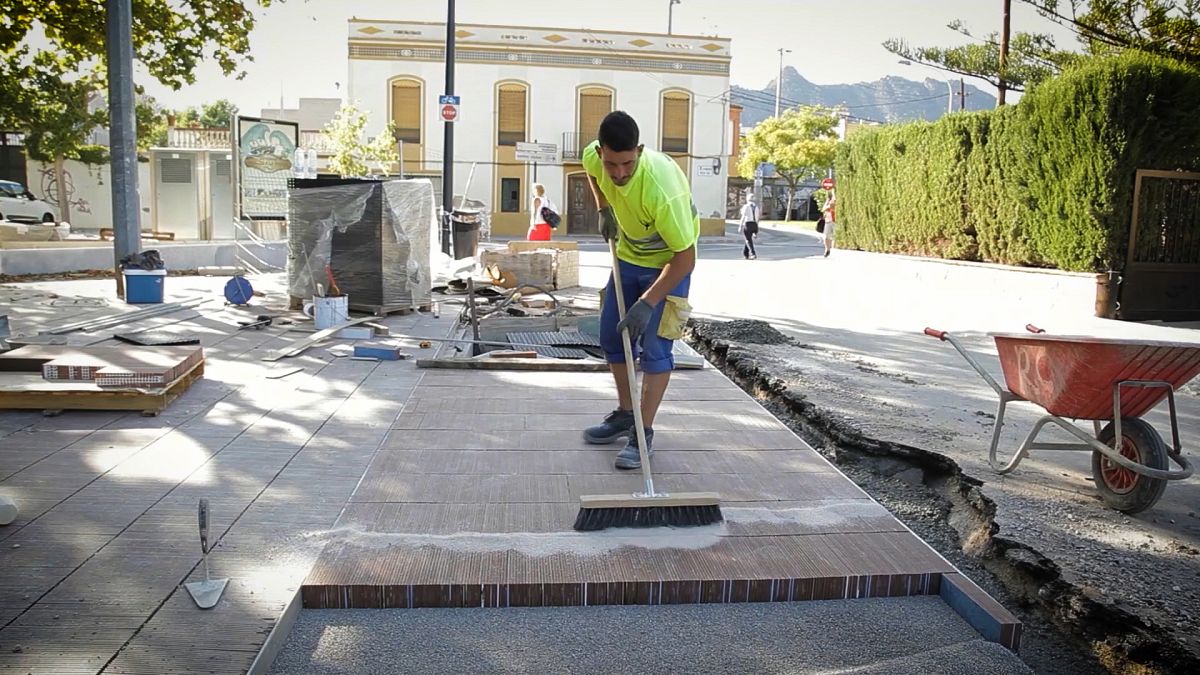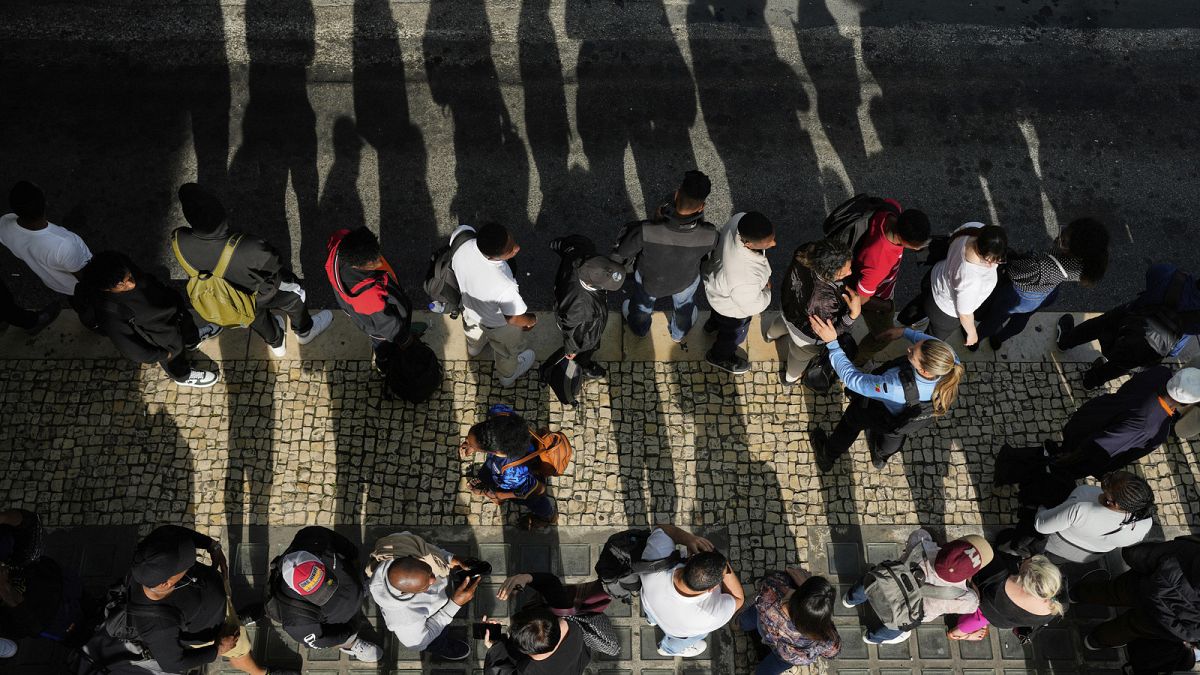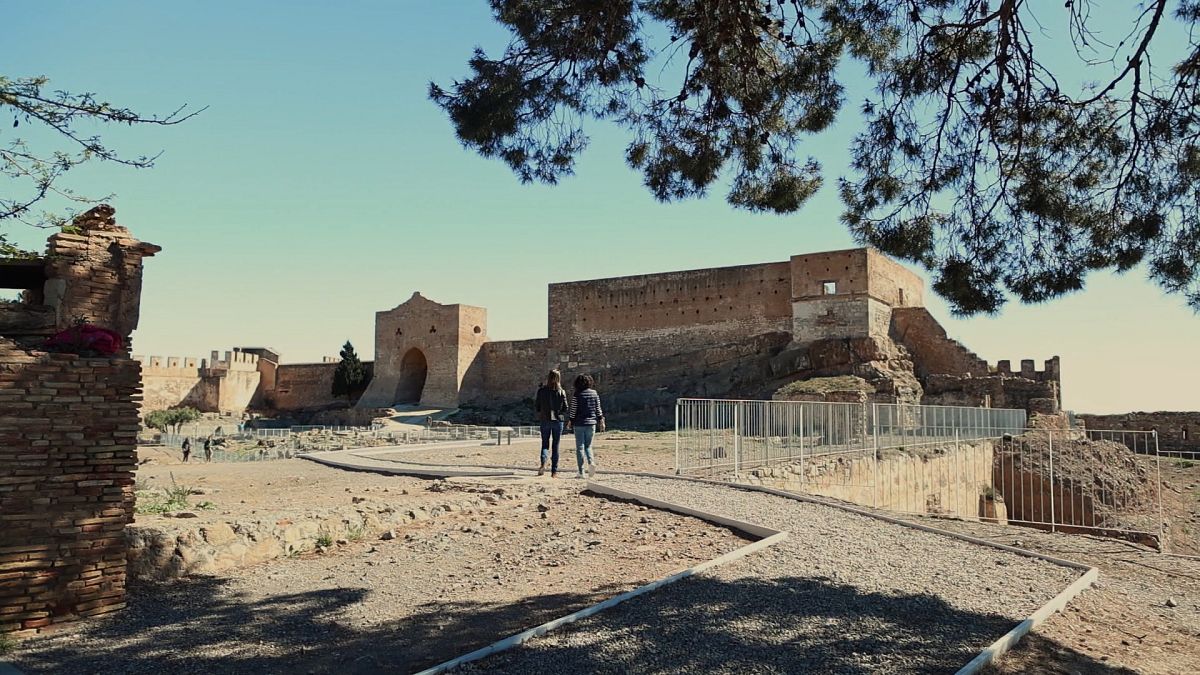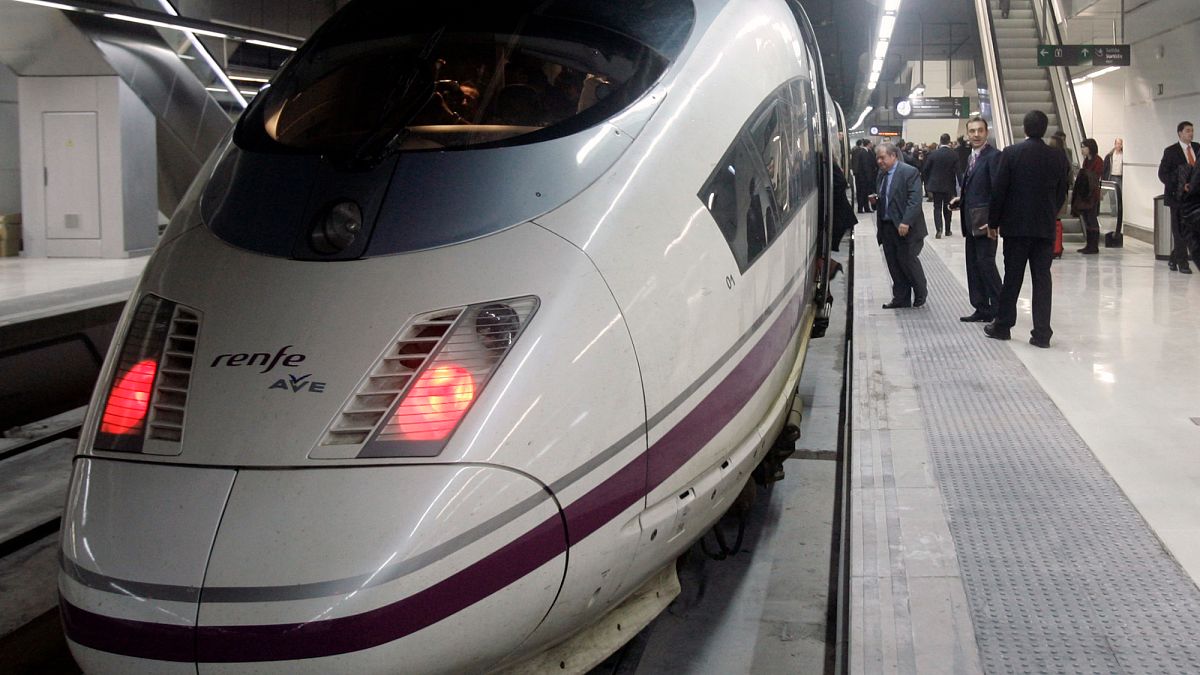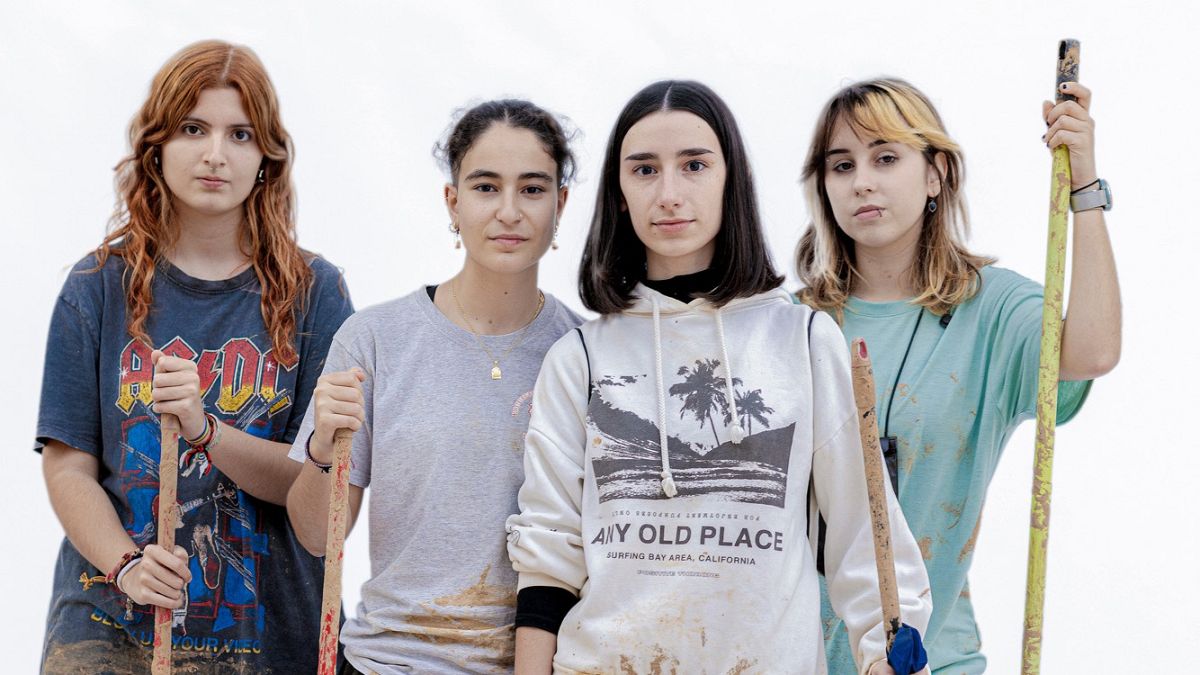Spain will soon lead the EU Council. Here are its priorities
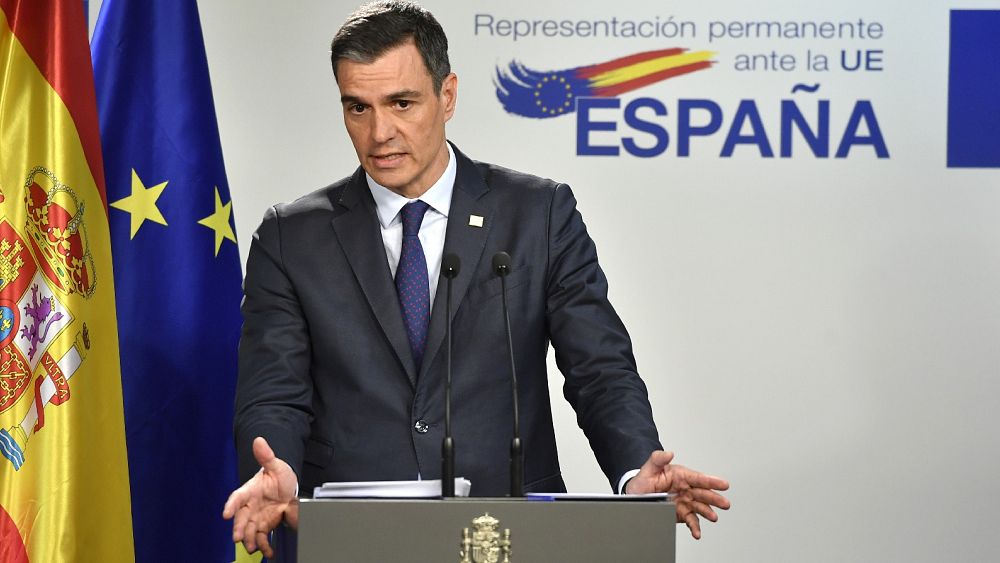
Spain will steer the EU’s political debate for the entire second half of the year.
Bolstering European industrial sovereignty, unity against global challenges and efforts to accelerate the climate transition will be at the heart of the Spanish presidency of the Council of the EU, Pedro Sanchez said on Thursday.
Madrid will take over the rotating presidency of the Council from Sweden on July 1. This will allow the southern nation to set the bloc’s agenda and political priorities for the next six months before handing over the reins to Hungary.
During a speech in Madrid on Thursday, the Spanish Prime Minister named reindustrialisation as his first priority, which he said would help the EU guarantee its strategic autonomy and sovereignty.
“I think that over the past four years we have learned many lessons from what the process of deindustrialisation in Europe has been and also what have been the consequences and the weaknesses and vulnerabilities that we have been accumulating as a result,” he said.
He called for the relocation to Europe of key industries, in particular in the fields of energy and health, citing for instance the shortages of personal protection equipment suffered by some member states when the COVID-19 pandemic erupted.
But he also made a case for the EU to ensure it retains a lead both when it comes to innovation and the regulatory framework for technologies that will grow in importance in the future, including renewables, robotics and digital products and services such as artificial intelligence.
‘Climate, social justice and unity’
The green transition is Sanchez’s second priority.
The leader argued that if the EU not only adapts to but also anticipates the challenge it represents, it “can also turn it into an immense opportunity for prosperity for the entire continent.”
He also said that done well, it will allow the bloc to reduce dependencies on energy and critical raw materials which are crucial to the manufacturing and deployment of renewable energy and “substantially lower our electricity bill”.
Third on Sanchez’s list of priorities is social justice, saying that positive national economic growth is not the end-all and that better wealth redistribution is needed across the bloc.
“We need to break the trend observed in recent decades, that corporate profits have not always served to reduce inequality or improved the opportunities and living conditions of ordinary people. We need an economy that has to be much more competitive, but also, and it doesn’t have to be contradictory, fairer and more supportive,” he said.
Finally, he wants to use the country’s presidency of the Council of the EU to “strengthen the unity of the European Union” so that it can not only weather the “growing uncertainties and geopolitical tensions” but become “one of the main architects of the New International Order”.
This, he said, doesn’t have to come at the expense of national sovereignty.
His wish list includes a deepening of the internal market, the conclusion of the banking union and the strengthening of sustainable finance instruments and funds such as NextGenerationEU, the post-COVID recovery fund aimed at accelerating the green and digital instrument.
The “optimisation of decision-making processes” at the EU level — code for changing voting rules from unanimity to qualified majority in some areas — and the adoption of a New Pact on Migration and Asylum were also cited by the Spanish leader as areas of interest.
EU countries reached a major deal last week, after seven years of protracted discussions, over two key parts of the New Pact on migration including a mandatory solidarity mechanism.
Talks with the European Parliament, the co-legislator, have since started and the Commission has expressed confidence that they could successfully conclude before the end of its current mandate in June next year.
One thing Sanchez, who is currently leading an embattled Socialist-led government, made no mention of in his speech however are the national elections to be held just three weeks into the country’s presidency of the EU and which could oust him to the benefit of a new conservative executive.
Source: Euro News



